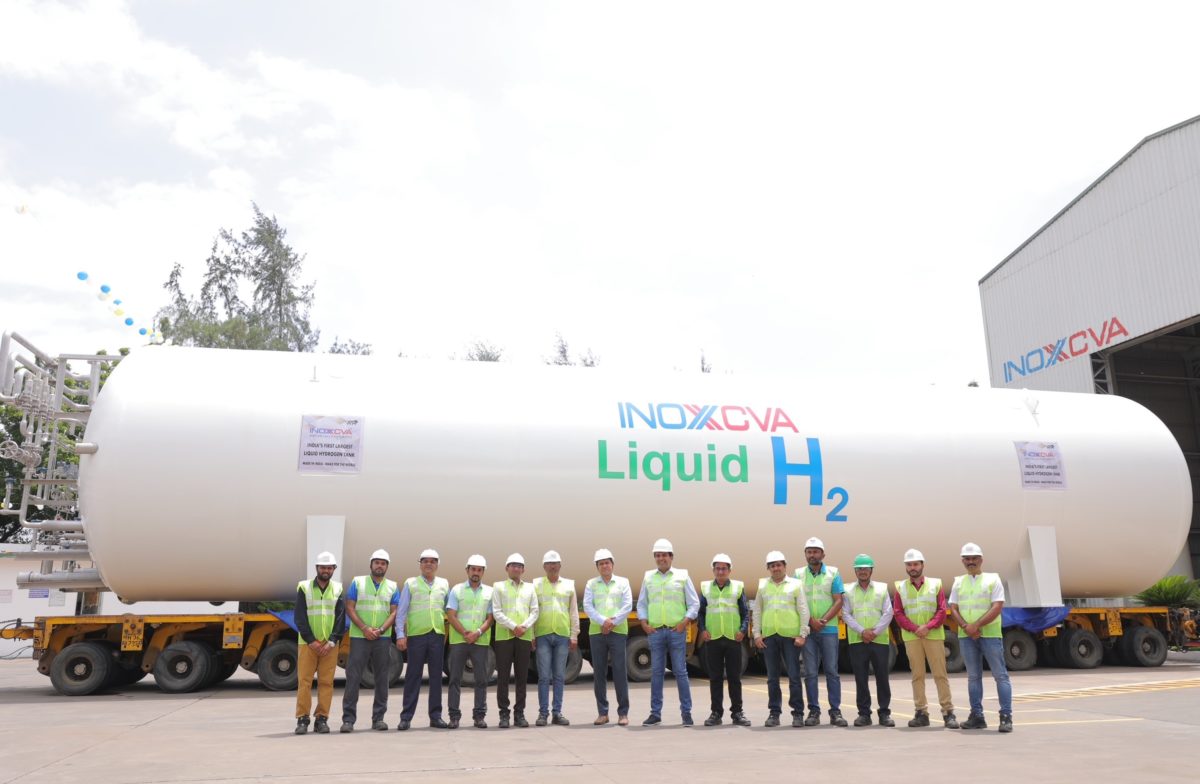INOXCVA, an India-based cryogenic equipment and solutions manufacturer, has finished building the largest liquid hydrogen storage tank ever made in India. The tank is built with a massive storage capacity of 238 cubic meters. It has already embarked on its journey from INOXCVA’s Kandla facility to a clean energy demonstration project in South Korea.
Hydrogen is liquefied at a cryogenic temperature of -253 C to make it dense enough to be stored and transported as liquid hydrogen. Its gaseous volume reduces by 800 times when liquefied.
INOXCVA’s bulk cryogenic storage tank is built to European Standards and meets Korean Gas Safety (KGS) requirements. It will be deployed for South Korea’s first hydrogen liquefaction plant, with 5 tons per day of capacity, to offer supplies to hydrogen charging stations for buses, trucks, and trams. Doosan Corp. is constructing the plant for the Changwon Hydrogen Liquefaction Project, which is set to start commercial operations in 2023.
Doosan has signed an agreement with Air Liquide Engineering and Construction to support the construction of the liquid hydrogen plant as an enabler of clean transport development in the country. Under this framework, Air Liquide Engineering and Construction, France, placed the liquid hydrogen tank order to INOXCVA.
“We are honored to have designed, engineered, and manufactured the largest liquid hydrogen tank ever made in India, and become a part of a global clean energy initiative. We have demonstrated our world-class cryogenic capabilities for projects of such magnitude,” said Siddharth Jain, director of INOXCVA. “This tank, which is first in a series of many such solutions to be manufactured at our Kandla facility, will strengthen India’s hydrogen infrastructure and support the country’s vision of becoming a green hydrogen hub and augment the adoption of this clean gas as an energy alternate.”
This content is protected by copyright and may not be reused. If you want to cooperate with us and would like to reuse some of our content, please contact: editors@pv-magazine.com.









By submitting this form you agree to pv magazine using your data for the purposes of publishing your comment.
Your personal data will only be disclosed or otherwise transmitted to third parties for the purposes of spam filtering or if this is necessary for technical maintenance of the website. Any other transfer to third parties will not take place unless this is justified on the basis of applicable data protection regulations or if pv magazine is legally obliged to do so.
You may revoke this consent at any time with effect for the future, in which case your personal data will be deleted immediately. Otherwise, your data will be deleted if pv magazine has processed your request or the purpose of data storage is fulfilled.
Further information on data privacy can be found in our Data Protection Policy.